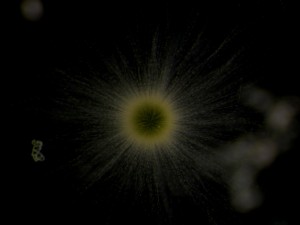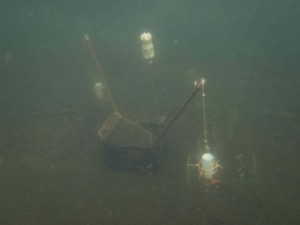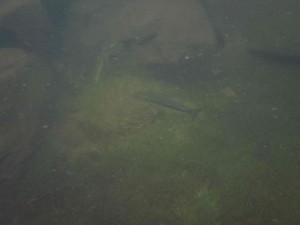Our recent Freshwater Science paper, Carey et al. (2014), is available free for a three month period, courtesy of being the Featured Article in the June 2014 issue.
This paper reports on the first 8 years of monitoring the recruitment of our favorite charismatic microflora, Gloeotrichia echinulata, from the sediments into the water column of Lake Sunapee, NH.
Like many cyanobacteria, Gloeotrichia forms resting stages, or akinetes, to tolerate adverse conditions such as winter. Cued by decreasing light and temperatures, and possibly decreasing nutrients, during late summer and early fall, akinete formation is followed by the collapse of the water column population. Parent colonies senesce and sink to the bottom, awaiting environmental cues to germinate and then return to the water column in a subsequent spring.
Since 2005 – when Cayelan Carey did her senior Honors thesis on Gloeotrichia – we have placed traps out in Lake Sunapee to catch this organism as it returns to the water column – see photo at right. We sample the traps by snorkeling once each week beginning in May and ending in mid-to-late September.
By deploying multiple traps at a site, and having multiple sites around the lake, and doing this for many summers, we were able to begin dissecting what might cue recruitment in this species in this lake.
The punchline of the paper is that mixing of the nearshore waters – as typically happens in late summer when the surface of the lake begins to cool down at night – appears stimulate recruitment. In years with warmer August overnight air temperatures, there was much less Gloeotrichia recruitment than in years with colder overnight temperatures.
The next step is to determine whether this might also hold true in other lakes – and for other cyanobacteria.
Meanwhile, we will continue to enjoy our close encounters with other freshwater life during the weekly snorkeling trips!
KLC, 14 July 2014




